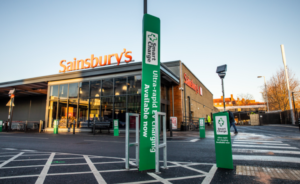Vehicle rental sector calls for diesel reduction in cities
The trade body representing the vehicle rental sector has called on the government to focus efforts on reducing diesel car use in urban areas — and focus on electric and hybrid vehicles as an ‘affordable alternative’.
The British Vehicle Rental and Leasing Association (BVRLA) has this month published a ‘blueprint’ document calling for a “steady transition away from using diesel vehicles”, advocating government policy that focuses on trying to reduce car ownership instead of just choosing alternative vehicles.

BVRLA is calling for a shift away from using diesel vehicles in towns and cities
Measures including a scrappage scheme that provides mobility credits for public transport, car club and car rental journeys could stimulate this behaviour change, the report commissioned by the BVRLA and produced by Ecuity Consulting, has claimed.
BVRLA members provide car sharing and vehicle rental and leasing to businesses and consumers across the UK, operating more than 4.7 million vehicles.
The organisation has also claimed that the government needs to provide a “consistent” clean air zone policy framework across the UK to avoid placing extra burdens or costs on people and businesses driving between urban areas.
Future
BVRLA chief executive, Gerry Keaney, said: “Diesel vehicles play an essential role in transporting goods and people around the country, but the emissions they produce on low-speed urban roads means they have no long-term future in our cities.
“We need a carefully blended set of incentives and restrictions that removes the oldest, most polluting diesel vehicles without crippling our economy or punishing people for decisions they have already made.
“The vehicle rental and leasing industry has a huge stake in this transition and we look forward to working with local and national government to deliver a workable solution.”
According to the report, government policy aimed at reducing air pollution is better targeted at car users than commercial vehicle operators, as there are more alternatives available in the car market, and as commercial vehicles “additionally travel more often on rural roads.”
Government policy which delivers a 6% annual reduction in diesel car-market share would take over 5 million diesel vehicles off the road and reduce NOx emissions by 109,000 tonnes over a 10-year period, the report has suggested.
The report adds that the promotion of ‘mobility services’ is a good way for the government to support NOx emission reductions, which BVRLA claims provides the greatest social benefit. “The can be promoted by supporting car sharing schemes, public transport, cycling and walking in urban centres,” the report states, adding: “In order to most effectively tackle air pollution, many commentators have noted that vehicle numbers need to be reduced in conjunction with greening the UK’s fleet.”
Related Links
BVRLA – Diesel vehicle market share reduction analysis
















